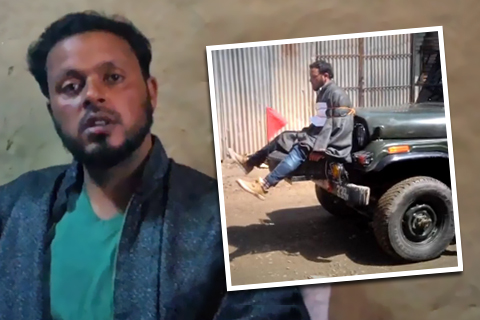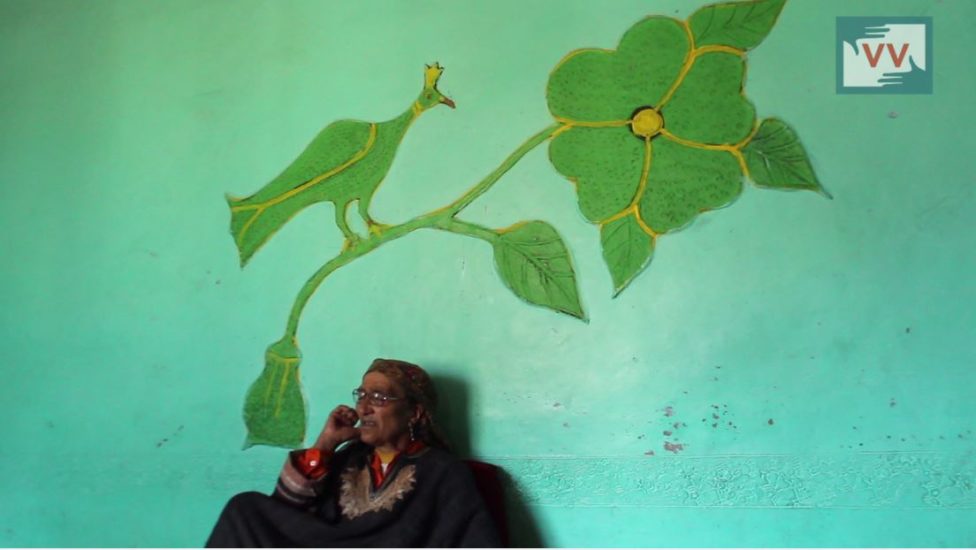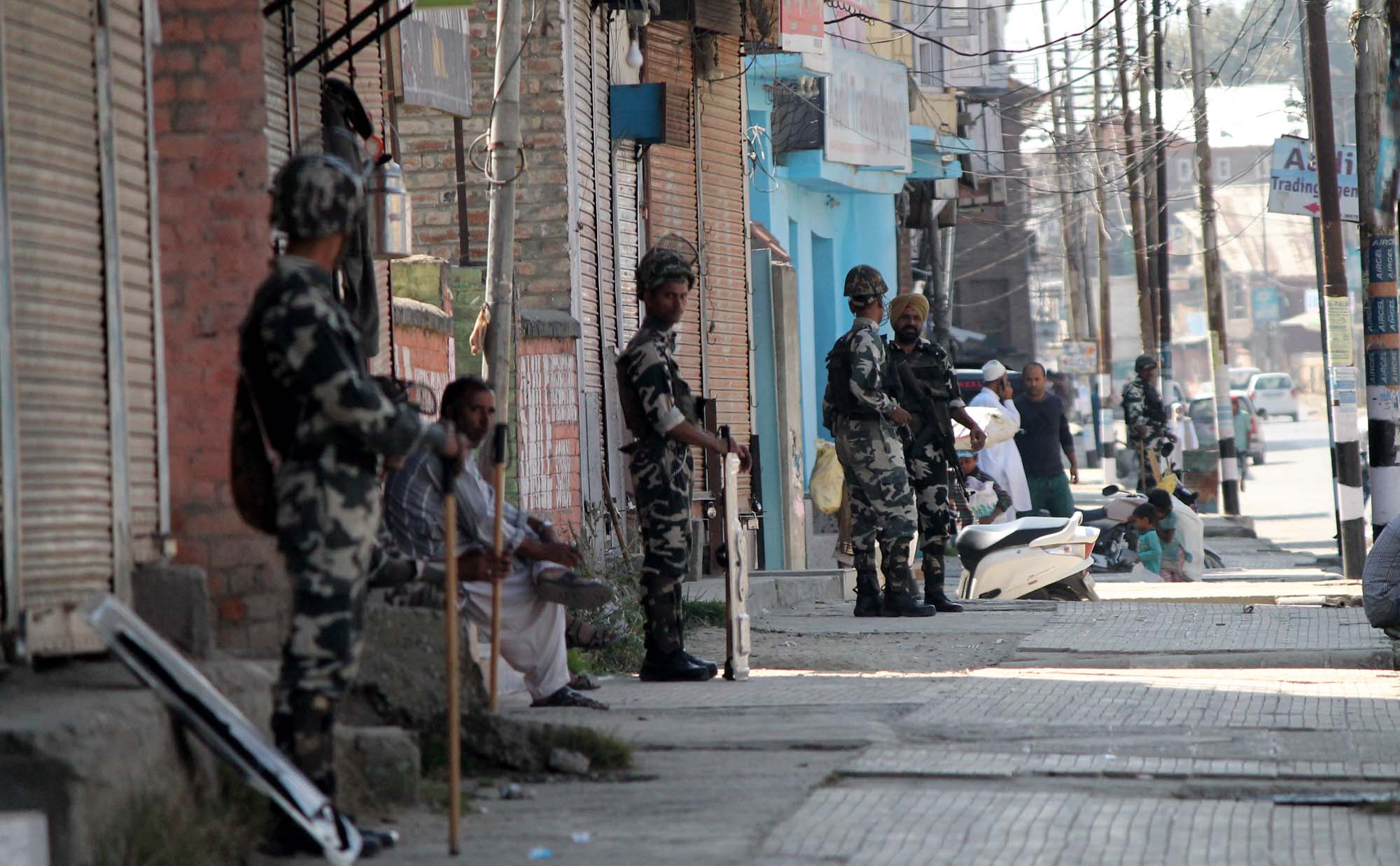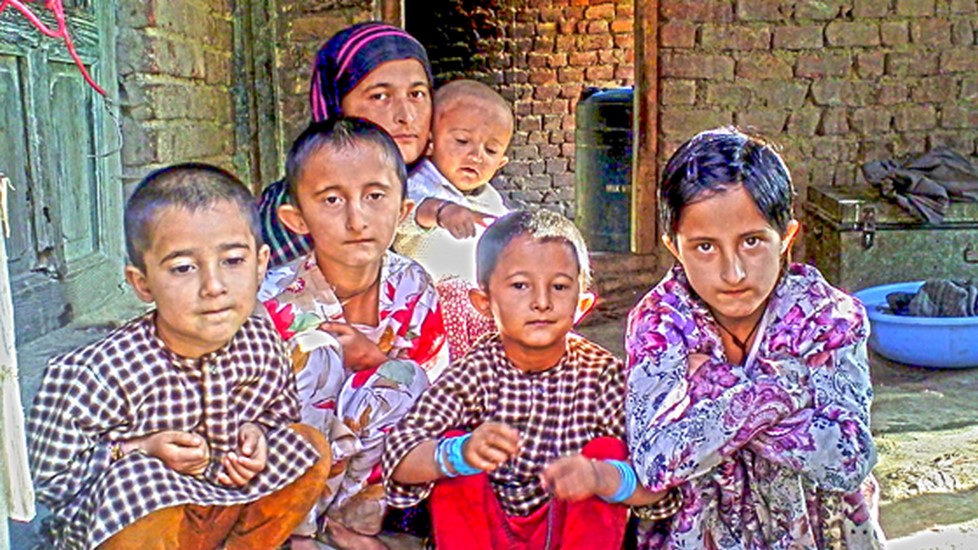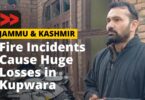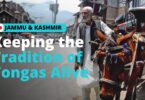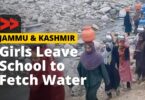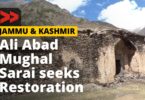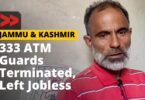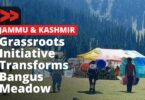Video By: Rafiqa Bano | Article By: Madhura Chakraborty
“My mother wants me to go see a doctor. But I am afraid of going to a hospital. I’m afraid they will find me and kill me…I haven’t stepped outside my house in the last eight days.” This testimony comes from a twenty six year old shawl weaver from Kashmir. Farooq Ahmad Dar lives with his mother in a village in the Budgam district of the valley. The bypoll for the Srinagar Lok Sabha seat was held on 9 April 2017 amidst fierce protests from civilians and heavy presence of armed personnel. Farooq got out of his home at 8 am to go cast his vote. On his way back from the polling booth he was going to visit a relative’s home. But he only returned home late that evening, traumatised and with injuries. He was one more casualty of the impunity the armed forces enjoy in Kashmir.
Farooq was stopped by armed personnel from the 53 Battalion of the Rashtriya Rifles, a part of the Indian Army. He showed them his finger, marked with the indelible ink–a certain proof of his having cast the vote. Despite this, they beat him up brutally. But this was the beginning of this ordeal. Following this he was tied to the front of the army jeep and paraded through multiple villages for almost thirty kilometers. “They treated me like a football. I am a human being, not a toy,” he asserted in his interview. A bystander shot a video which went viral over social media. In the shakily shot mobile video one can clearly hear the military personnel announcing over a megaphone “This is what will happen to stone pelters”. They made an example out of Farooq. Only, he was no stone pelter. The irony is that he was one of the 6.5% of the electorate in the state that turned up to vote on 9 April–a day marked by protests and death of 8 protesters in army firing. He’s part of the miniscule population of Kashmiris who still choose to place their faith in democratic processes despite the suspension of fundamental rights in the valley for over twenty seven years.
This is not the only such video to have emerged in the last month or so from Kashmir. Reports reveal 10 videos of armed forces beating or torturing Kashmiri youth are circulating on social media, some of them apparently shot by army personnel themselves. The cyber crime cell in Srinagar was in the process of identifying and banning users who uploaded such videos. Mobile high speed internet was blocked in the valley on April 17. Since 2012, the state has cut off internet for the citizens for an astounding 28 times. The social media, especially Facebook, is widely used by Kashmiri youth as a means of expressing dissent and presenting an alternate view to mainstream media depictions of their lives.
The rise of the separatist movement in Kashmir in late eighties resulted in heavy deployment of military and paramilitary forces since the early nineties. Kashmir is infamous as the largest militarised zone in the world. The military and paramilitary personnel are enabled further by laws like the Armed Forces (Jammu and Kashmir) Special Powers Act (1990) and the Jammu and Kashmir Public Safety Act (1978). The former empowers armed personnel to “fire upon or otherwise use force, even to the causing of death” in case of perceived contravention of law and order. The Public Safety Act (PSA) has provisions for arresting and jailing a person without trial for two years to on suspicion that s/he may disrupt public order or act against the security of the state. Between July and October of 2017, over 7000 Kashmiris, most of them young boys, were jailed under this law. Even minors as young as thirteen were not spared. Rights groups documenting human rights abuses in the valley estimate that over 70,000 have been killed, over 8000 people have suffered enforced disappearance and there are over 6000 unknown, unmarked and mass graves.
Farooq is poor and cannot afford to pursue a case against the personnel of the Rashtriya Rifles. The outrage over the incident has ensured however that the state police has lodged a First Information Report against the Rashtriya Rifles Battalion responsible for the incident. However, at the same time various justifications were provided by officials of the central government and the army to justify the actions. An army probe into the incident concluded that “the commanding officer took the decision reluctantly and as the last resort” when he realised that his unit had to pass an area where people had gathered to protest. Others like Attorney General Mukul Rohatgi have been more outspoken in extending their support to the act:
The recent report about a stone pelter tied to an Army vehicle, it helped contain stone pelters and saved the poll officials. Why so much noise…Everyday people are dying. It’s a surcharged atmosphere. The Army is dealing with terrorists not with protestors, so they will have to be dealt with…everyone should look at the Army with pride, they are doing a great job…Sitting in AC rooms you can’t criticise army. Please put yourself in army position
Currently a more in depth inquiry into the incident has been ordered by the Army’s Court of Inquiry which has to reach a decision by May 15. It is important to note that according to the Section 7 of the AFSPA, army personnel guilty of human rights violations cannot be prosecuted in civil courts without sanction from the central government. According to an Amnesty International report in 2015, the Ministry of Defence and Home Affairs refused to reveal the number of requests for prosecution for armed personnel they received and so far no army personnel has been tried or convicted in civil courts of justice, even for cases of mass sexual assaults. Given this history and the current political climate in the country, where criticising the army’s actions is immediately seen as an ‘unpatriotic’ act, it is hard to hold hope for justice. Meanwhile, Farooq and his mother–Farooq’s brother was allegedly killed by the army in the 90s–continue to live in insecurity. The politicians, army and media will move onto the next big issue. But what will happen to this traumatised and humiliated young shawl weaver in a forgotten corner of Kashmir?

